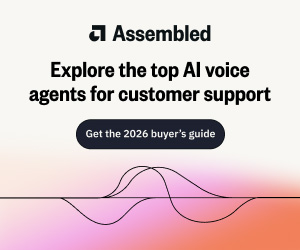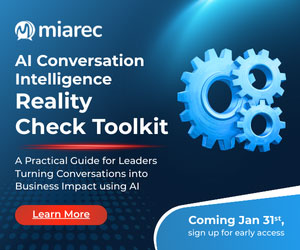When it comes to customer care, there are many possibilities for applying Artificial Intelligence (AI) to increase efficiency, lower costs and improve the customer experience.
The question that many companies are facing is not whether they should incorporate AI, but how.
Not all AI is created equal — and for the purposes of customer care, there are actually some specific characteristics that it’s important to make sure your solution has.
There are a lot of solutions that claim to offer “conversational AI” — that is, AI that makes technology seem more human by allowing customers to engage naturally to solve problems.
But the reality is that many systems, including chatbots and personal assistants, fall far short of this goal.
Intelligent Virtual Assistants (IVAs), on the other hand, provide true conversational AI experiences by employing technologies such as dialog management and machine learning to enable the system to continuously learn and get smarter.
What Is an Intelligent Virtual Assistant?
In terms of customer care, IVAs are used by enterprises to effectively communicate with customers while providing highly functional and efficient self-service.
IVAs are designed to mimic human interactions in a very practical and non-intrusive way, so that customers can speak naturally — in their own words — without being forced to choose a menu option or follow a specific path.
IVAs can also be implemented across a variety of channels — including voice, chat, SMS, messaging platforms, home devices, and more — depending on where an organisation’s customers prefer to interact.
What Are the Technologies That Go Into Creating an IVA?
There are a number of underlying technologies that go into creating an IVA. These include:
Automatic Speech Recognition (ASR)
ASR is an underlying technology of artificial intelligence, and a foundational technology that allows computers to understand spoken words.
ASR can be trained to understand languages, dialects and accents, and is responsible for taking in speech or sounds and transcribing them into words.
Natural Language Processing (NLP)
NLP is an umbrella term that covers natural language understanding (NLU), natural language generation (NLG), and dialog management. Because the human language is extremely complex, words can mean different things in different contexts.
NLP enables an IVA to make sense of a customer’s language and recognise his or her intent, and produce a response.
Machine Learning
Machine learning is a set of algorithms used to train a computer to perform certain tasks without being explicitly programmed.
IVAs utilise machine learning and deep neural networks (DNN) to learn and become more intelligent as they process more and more transactions.
To learn more about what goes into creating an IVA, download the Interactions’ white paper: Intelligent Virtual Assistants 101
Author: Interactions
Published On: 9th Aug 2018 - Last modified: 26th Feb 2025
Read more about - Expert Insights, Artificial Intelligence (AI), Interactions










































